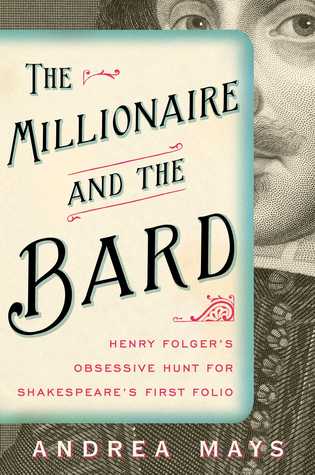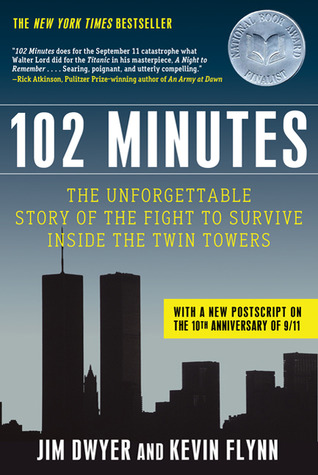Rating: 4 Stars
I am almost embarrassed by how short this review is going to be. Typically as I read, I update my progress on Goodreads and make notes of things I want to be sure to mention when I review a particular book. There are some books that are so inaccurate or terrible that I am constantly stopping to make a note of this or that. There are some books that bore me so much, I end up just turning pages without REALLY reading just to be done.
And then there are books like this, stories that I am so familiar and comfortable with, I breeze through and am done with the book in no time. Sadly still though, without hardly a note to speak of.
If you have been reading my blog for a while, or know me at all, you might recall that Eleanor of Aquitaine is a heroine of mine. She is the first reason I picked up this book. The second reason is that it is always refreshing to me to see strong female rulers BESIDES Elizabeth getting the credit and spotlight they deserve. Despite the fact that save for one, Mary I, none of the women ruled on their own, they still wielded great power and contributed to the making of England.
I must first point out, the title is not something I care for. Perhaps this is because I associate the term 'she-wolf' with Isabella, wife of Edward II. She has been referred to through the centuries as Isabella, She-Wolf of France, and not always in a very nice way. Now to be fair, she and her lover Roger Mortimer did have Edward deposed and murdered so it is kind of fitting, but thus it is not how I want Eleanor of Aquitaine referred to as well. Eleanor might have incited her sons into rebellion against their father. More than once. But she did not have him murdered. Okay, so he basically died because Richard all but hounded him to death, but it is not exactly the same. It's not.
Anyway.
It might surprise some readers then that the book begins, not with any of these she-wolves, but with a fifteen year old boy. Edward VI is dying, slowly and painfully. The Tudor dynasty that Henry VIII literally killed for is on the verge of collapse because it just can not be accepted that a woman might be able to rule the country. At least, not an independent, adult woman. Readers are introduced to the whole background, how Mary and Elizabeth were excluded from the succession in Edward's last days, how Jane would be proclaimed queen, and the country saved from a return to the old faith. And yet, despite the fact that these men surrounding Edward feared what might happen were a woman to rule, we then step back in time to see that this did, in fact, happen already and in some cases, quite successfully.
First there is Matilda, daughter of Henry I who lost her brother when the White Ship sank and Henry found himself without a legitimate male heir. Despite demanding loyalty be sworn to Matilda as next in line, the moment Henry had passed those loyalties quickly shifted and suddenly Stephen, Henry's nephew was proclaimed king. The result was a bloody and violent civil war that raged for years and all but tore England apart. It only ended when Stephen agreed that Matilda's son Henry would succeed him in place of his own son. It helped that his own son passed away and would therefore been unable to rule, on account of the being dead and all.
As with other books of similar content, it took too long to get to the section about Eleanor, and even as I was reading it flew by too quickly. But that is a personal thing, as anyone else who might be far less invested in Eleanor's story will not think so. We follow Eleanor from her days in Aquitaine, to the court of France where she first became a queen, then back to Aquitaine after her annulment and quickly on to England where she arrives as queen of England to Henry II. There is a reason her chapter is titled, "An Incomparable Woman". In fact, there are many. But you'll have to find those reasons for yourself, as her story is so remarkable that justice is not done to it when hearing only the summary.
After Eleanor comes Isabella, as mentioned above. Her story is an interesting one to be sure, another I know well. One can hardly fault her for eventually resorting to the violence that she (likely) ordered. From the start, Isabella was treated as though she were in the way in her own marriage. Edward II was nothing like his father Edward I. He spent his time with hobbies deemed below his station - I mean, he was the king, shouldn't he be allowed to do whatever he wants? But no, everyone was up in a huge tizzy because he enjoyed what were referred to as 'rustic pursuits'. Things like swimming, rowing, digging ditches, thatching houses, etc. The digging ditches thing always confused me, I mean what did he do, just go around the castle grounds digging random ditches? This part is never really explained in any book I have read of them thus far, but come on. Let the king do what he wants, as long as his mind is also on the keeping the realm safe. The problem was, Edward II was not really interested in battles and military; he preferred hanging out with his favorites and this left little room in his life for Isabella, who suffered great indignities at times for the sake of these male courtiers.
The last she-wolf we meet before Mary I is Margaret of Anjou, who was in the unenviable position of being married to King Henry VI. He'd not have been such a terrible king had he been mentally stronger than he was. But during the periods of time when he lapsed into a king of trance and didn't emerge for months, it was easy for usurpers to claw their way toward the throne. Their collective story remains one of the saddest for me in the whole of England's history. In those times that Henry VI was basically a vegetable, Margaret had to work twice as hard to hold the kingdom and her son's inheritance together. Then Henry would become lucid again, but never exhibited the strong characteristics needed in such turbulent times. Eventually Margaret would lose both her husband (likely murdered on Edward IV's orders) and her son (battle) and end her days living in Anjou once again without anything to show for having once been Queen of England.
The text then ends where it began, with the death of of Edward VI. The discussion turns to Mary, the challenges she faced both before and during her rule, and finally her death and a brief look at Elizabeth's rule. If you are interested in further reading specifically about Mary - which I highly suggest, as she has gotten the short end of the stick for the last 450 years - check out the books I have reviewed about her located under the Tudor tag here, or on my Goodreads Tudor shelf. She deserves a second look, for certain.
Additional material that I find especially helpful were the family trees located just before each section. Even someone with a lot of background knowledge of the rulers in each period still might find it easy to mix up siblings and cousins and such. New readers will also find it helpful to see how these women were all related to one another either by marriage or blood, down through the centuries. It really is amazing how much we are able to know about so many people who lived so many centuries ago. Almost 1,000 years separates us from Matilda and Eleanor. While there are many things we will likely never know, there are still documents and decrees and such that find their way to the light for eager amateur and professional historians alike. We are also given maps of each period, in order to show how England's claim to continental lands grew and shrank over the centuries. Again, a very helpful resource especially for those new to the subject.
Overall, this is a highly engaging, well-written account of women who ruled in a time when that was all but unheard of. These women faced major obstacles time and again; some they overcame, some they did not. But their stories are worthy of being told. Highly recommended.



















